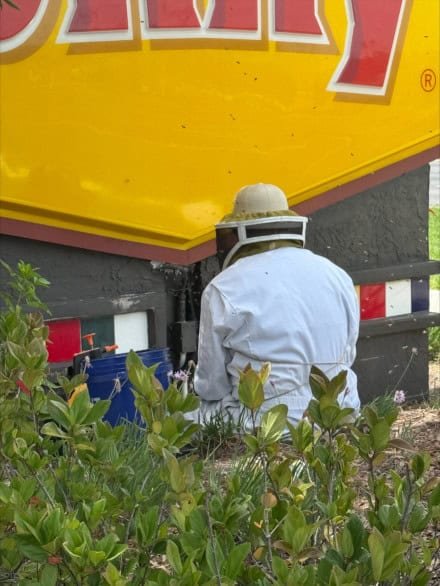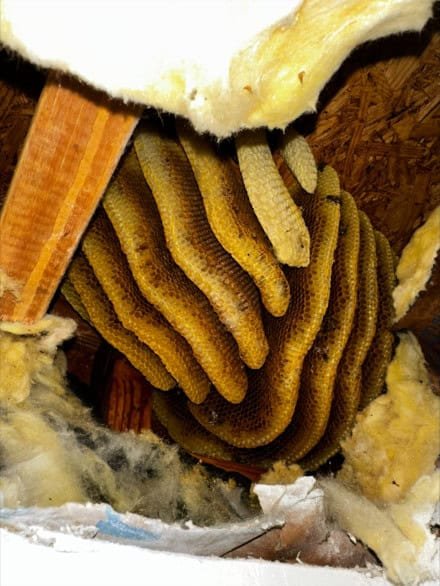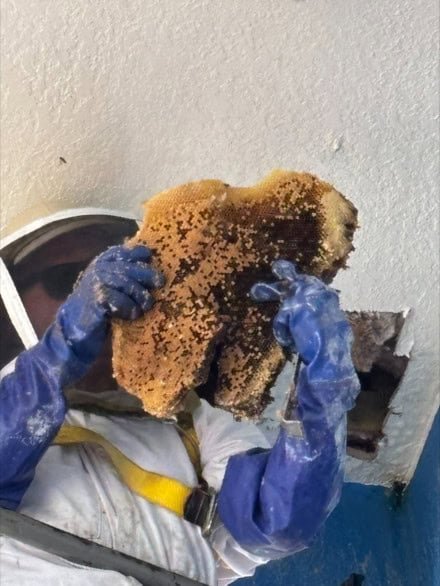

Honeybees swarm. This is a natural reproductive behavior where the colony splits and half of them leave with a queen to start a swarm. Swarms are safely removed.
Honeybees can build large nest including honey, comb, and broad in a short period of time. We remove the colony and the nesting material so the honeybees don’t come back.
We specialize in defensive honeybee removals. Not all honeybee colonies are the same. Some are more dangerous than others. We take the sting out of honeybee removals.



Have a bee swarm or hive causing concern? Our professional bee removal services in Central Florida safely relocate bees, protecting your property and the environment. Call us today for fast, eco-friendly solutions!
Attempting to remove bees yourself can lead to stings, falls, or allergic reactions. Professionals use protective gear and safe methods to handle hives, ensuring no harm to you or the bees.
Our experts remove the entire hive, including honeycomb and larvae, to prevent re-infestation. We relocate bees to safe environments, supporting their vital role in pollination
Bees are essential for pollinating plants, supporting food crops and ecosystems. Our humane removal methods ensure bees continue their critical work elsewhere.
We avoid harmful chemicals, using specialized equipment to relocate bees safely. This protects both the environment and your property.
If you notice a bee swarm or hive on your property, especially near living spaces, professional removal is recommended to ensure safety.
Yes, our services focus on relocating bees to a safe location, preserving their role in the ecosystem.
Costs vary based on hive size and location. Contact us for a free estimate tailored to your situation
DIY removal is risky due to potential stings, falls, or incomplete hive removal, which can lead to re-infestation. Professionals ensure safe and effective results.
cost effective solutions
Residential | Commercial